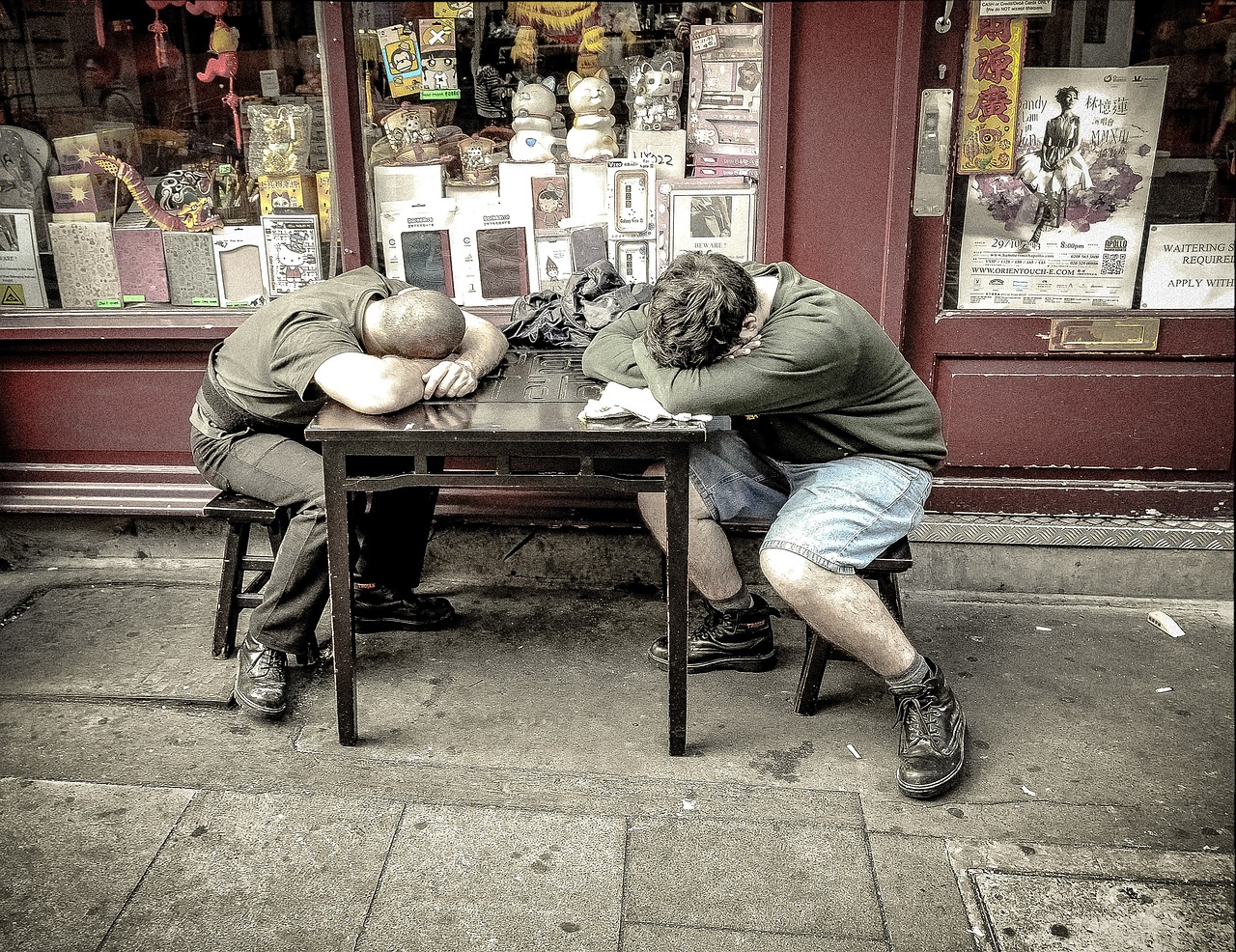Post by Willem Pretorius
My story begins on the 26th of March 2017 when I decided to go for another run as I have done over the last few years. It does end up very differently as whilst I was out running I suffered what is known as a sudden cardiac arrest. I don’t have any memory of the event, just stories I was told by many people.
This single event has changed my life in so many ways – many of my fellow survivors can probably agree with this.
Since my cardiac arrest I have been at home recovering – I have spent so many hours on the sofa watching TV. Trying to make sense of life and trying to find a way back to normality. Fatigue, brain fog, memory difficulty, personality changes is all part of the new me.
I tried to return to work in February 2018 – with in my view, disastrous results. It became very clear that 1) My company really did not know how to cater for my needs. 2) My boss who Is also a close friend had no understanding of what I could and could not do. 3) My two hours of work was costing me 2 days of recovery. All of this led me to get myself signed off again as this was not sustainable.
I had been in contact with my insurance company about a return to work – after this failed attempt they requested that I meet up with an occupational therapist to see if they could help me to get back to work. I was at first concerned that they were going to push me back to work no matter what – but I can honestly say that is not my experience so far.
How did we start?
I had a home visit by one of the lead occupational therapist to review and see where I was in relationship to return to work. We had a two hour conversation about me ( for those who know me that is not a problem as I like a good chat)
The result of this was a very detailed report that was sent to my insurance company and to my work showing that I was not in any way prepared for a return to work and they suggested a 3 months intensive occupational therapy engagement to try and help me get strategies around some of the issues that I face with a view of helping me get back to work.
 Session 1
Session 1
The first session was again just a discovery session with the new occupational therapist. She had seen the report but wanted to hear my side of the report.
We spent some time putting together a “goals list” for us to work on and to give me something to aim at. Some of the items on the list were
- Helping me manage my fatigue better
- Helping to cope/get rid of the brain fog that we all know so well
- Improving my interaction with people – getting rid of my black and white way of viewing everything
- Etc
This session was a bit emotional for me as we also discussed how I got to where I am right now.
 Session 2
Session 2
Gloves off session as far as I am concerned. Today the hard work starts on getting my brain back into action.
My lovely occupational therapist spent the first 10 minutes or so just recalling what we had spoken about before handing me a sheet of paper to work on
Task 1
The first sheet consists of about 9 sentences all mixed up. My task is to read the sentences and try and make a story out of it. This sounds easy , but there is no real chronological clues as to how this should look – and from what I was told after – no real correct answer.
It takes me a good ten minutes to read the lines – try and figure it out – and then put them roughly into the story. Jo (my occupational therapist) says I did good and gives me 4/5 for the task – Rock and roll.
Task 2
Similar to task one – BUT – this time Jo asks me to put the TV on – and to push the volume up to a lot more than I would normally have the TV on. I struggle with sound sensitivity and light sensitivity so this immediately puts a new spin on the exercise.
This time the exercise has ten sentences – but the idea is the same – make a story with them. This time it is harder as I have the TV blaring in the background and the constant flashing of lights pulls my attention away. I decide to not allow it to distract me too much and crack on with it.
Jo is pleased with my attempt and again gives me 4/5 for the work done. She said that having the TV on does make it much harder and she seems pleased that I managed to focus on the task and not getting too distracted by the surrounding
Task 3
Here comes the tricky one. Jo hands me a piece of paper. It has the alphabet arranged in a circle. At the bottom of the paper is a load of numbers. She tells me that I will need to use the alphabetical circle to decipher the numbers and to put the sentence together -EASY I think – but no – the ordering of the numbers change so not as simple as I thought.
Off we go… I start and decipher the first 10 words or so pretty easily. Jo – not being happy with this puts down her phone, puts on a timer and tells me to count from one to ten every time the timers gets to a minute.
Here I am now sat having to count the numbers to figure out which letter I need to put on the sentence – while also keeping an eye on the timer – and then remembering to count when it gets to a minute – and ooh yeah – there is no reminder of the instructions….
After 20 minutes of doing this I am pretty exhausted – but being me I crack on till jo says – “you are allowed to stop and rest if you are fatigued” Big sigh of relief!! I stop for about 5 minutes -do some relaxed breathing and then continue.
By the end of the session I am thoroughly knackered but Jo seems pleased with the work that I had done and gives me some positive feedback..
Looking forward to the third session in two weeks….
 Session 3 – Fatigue
Session 3 – Fatigue
The old enemy. I have had lots of issues around fatigue. It has been my nemesis since my cardiac arrest and have also spent many many hours talking to NHS staff about how to manage it.
What I have realised is that I am my own worst enemy. I come from a very busy background so having to stop myself from doing things because I am tired does not come naturally to me.
During the session Jo gave me a sheet to fill in to gauge how I handle fatigue and also to see what my awareness of it is. I guess after 15 months of struggling with it I am luckily now much better at dealing with it. We worked out that I am generally pretty aware of it and that the coping mechanisms I have put in place are working better now.
We discussed the things that affect my fagitue – things that cause it , things that make it worse and better. All of this we wrote down on a sheet as a reminder for me
I asked her the poignant question – will the fatigue ever go away? She gave me the answer that I was expecting – that we would have to manage the fatigue in the future – there was no guarantee that it would ever go away 100%
Now on to my homework for the week – a Fatigue diary. Just need to remember to do it on a daily basis.
Session 4
Further Fatigue work – we went through my fatigue diary. I think I am handling my fatigue a lot better and have been given more strategies to do this.
We did a few exercises where Jo reads out a paragraph to me and I have to take notes. She then asks me to highlight the important facts of the paragraph. This has variant levels of success.. Definitely affected by me being tired and getting more tired as we go along with the excercises..
And this is the point where I must admit – not having made these notes on the day and trying to rely on my memory is a bad thing – sorry folks but the above is all I could put together from memory!
 Session 5
Session 5
This week we worked on memory. This is something that I am very worried about as my memory can be very iffy at the moment.
We started the session by Jo talking me through the different types of memory:
- Episodic memory – memory for events
- Prospective memory – remembering to do things in the future
- Semantic memory – memory for facts
- Working memory – Holding information in your mind and using it
- Procedural memory – Memory for skills and movement
She also talked me through how memories are formed and stored into long term memory
We again did some exercise where she read a article to me and then I need to answer a set of questions on this. It is fairly clear that my recollection of facts is pretty bad
At the end of the session we discuss my future. I again ask the hard question – will I ever get back to being normal/me? I think this is where Jo gives me the hard facts – this always gets me as there is always a small part of me that hopes I will be able to be the old me again. The worry around being able to work, relationship break up etc is a big problem for me at the moment – but I am trying to deal with it all
Next week is our 6th session – half way through the agreed 12 sessions. I am feeling much stronger cognitively, but I think emotionally I am still a bit of a wreck…





